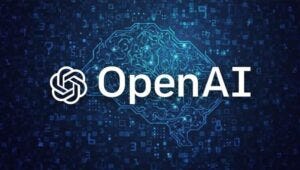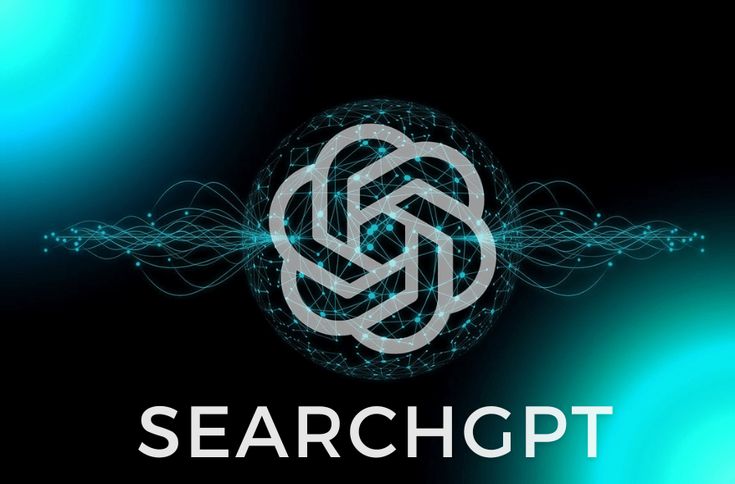OpenAI has officially launched ChatGPT with real-time web search, making it an AI-powered OpenAI Search GPT for paid users, and expanding to free, education, and enterprise users in the coming weeks. This integration allows users to access live, up-to-date information seamlessly within ChatGPT, bridging a competitive gap with AI-powered search engines from Google and Microsoft. Users can now initiate web searches either automatically or by manually enabling the feature.
This launch followed an exclusive preview in July as “SearchGPT,” tested with 10,000 initial users. Now fully integrated into ChatGPT’s interface, the web search offers direct answers and real-time data through OpenAI’s partnership with Microsoft Bing. The feature combines traditional search engine capabilities with ChatGPT’s advanced conversational model, answering queries with summaries, interactive graphics, and sources in a sidebar. This transparent display of sources enables users to click through to original articles for more detail, and allows follow-up queries to refine results, such as locating restaurants based on ambiance.
Key features of OpenAI Search GPT include:
- Conversational Interface: Users can ask questions in a dialogue format and follow up to clarify results.
- Direct Answers with Citations: The model provides direct answers rather than a list of links, citing the sources used in a dedicated sidebar.
- Ad-Free Experience: Currently, there are no plans for advertisements, allowing a cleaner experience than traditional search engines.
These enhancements come as AI-powered search gains traction across tech firms. OpenAI’s CEO, Sam Altman, shared that search is his “favorite feature” and highlighted it as a faster way to access information compared to traditional engines. Real-time data access, such as weather, stock prices, and news, positions ChatGPT to challenge Google’s search dominance while sidestepping advertisements.
In terms of technical integration, SearchGPT is speculated to use a Retrieval Augmented Generation (RAG) approach, blending search technologies to minimize misinformation. By embedding queries into vectors that capture their meaning, it retrieves relevant information from trusted sources, aiming for accuracy. This method makes it possible for users to see real-time and reliable answers.
OpenAI is also partnering with publishers like Reuters and The Associated Press, granting publishers control over how their content appears in searches. This collaboration aims to ensure quality content within SearchGPT while respecting intellectual property.
The updated feature is available across platforms on iOS, Android, and desktop apps, bringing AI-driven search capabilities into user-friendly, natural conversations. As more companies venture into AI search, OpenAI’s leap into real-time information delivery may change the way users interact with the internet.
OpenAI has transformed how we think about artificial intelligence and technology, constantly pushing the boundaries of what’s possible. With innovations like GPT models, OpenAI has shifted from theoretical AI research to practical tools that we use every day. Now, they’re setting their sights on revolutionizing search engines, with a unique approach that could transform how we access information online.

The Evolution of Search Engines
OpenAI Search GPT have been the backbone of the internet, guiding users to websites, answers, and insights for decades. Early search engines were essentially keyword-based directories, leading to algorithms that prioritized links and on-page SEO factors. The introduction of AI-enhanced features by companies like Google and Bing marked the next stage in evolution, leveraging machine learning to deliver more relevant, personalized results. But OpenAI aims to take search one step further, focusing on natural language understanding and conversational responses that feel more like talking to an expert than typing into a search box.
Why OpenAI is Entering the Search Engine Space
OpenAI Search GPT move into search engines aligns with growing user demand for AI-driven, personalized search experiences. Users today want faster, more accurate, and contextually relevant answers. OpenAI goal is to create a search engine that doesn’t just deliver links but understands and delivers complete answers, addressing each query in a highly intelligent and conversational manner. This evolution aligns with the trend toward more human-like interactions with technology.
How OpenAI Search GPT Differs from Traditional Ones
Traditional search engines operate by indexing the internet and ranking pages based on complex algorithms. OpenAI search engine, however, aims to use AI-driven models that analyze context, interpret nuanced queries, and generate responses in real time. Unlike a search engine that provides a list of links, OpenAI Search GPT model may deliver detailed answers and summaries, minimizing the need for users to click through multiple sources to gather information.
Core Features of OpenAI Search GPT
- Natural Language Processing (NLP): OpenAI leverages advanced NLP to interpret search queries more like a human would.
- Contextual Awareness: The search engine doesn’t just rely on keywords; it understands the context and intent behind each question.
- Privacy-First Approach: OpenAI emphasizes data privacy, ensuring that users’ search habits and personal data are handled with high standards of security.
The Role of GPT-4 and Beyond in OpenAI Search GPT
OpenAI GPT-4 and future models are central to this search engine, bringing powerful language-processing capabilities that help interpret even the most complex queries. By understanding language context and sentiment, the GPT-4 model enables a more accurate and intuitive search experience. The AI behind this engine will likely become even smarter with time, predicting user needs and delivering responses that are more specific and relevant than ever before.
Benefits of OpenAI Search GPT for Users
OpenAI’s search engine offers users a variety of benefits:
- Enhanced Accuracy: The AI model reduces irrelevant results, providing precise answers.
- Conversational Searches: Users can interact with the search engine in a conversational tone, making it feel more personal and efficient.
- Simplified Information Access: Instead of scanning multiple sources, users receive comprehensive answers in one place, saving time.
Potential Challenges for OpenAI Search GPT
Though promising, OpenAI’s search engine faces notable challenges:
- Competition: Giants like Google dominate the search engine market, making it hard for new entrants to gain traction.
- Data Privacy: As AI processes more personal data, concerns about privacy and data handling grow.
- Natural Language Comprehension: Perfecting a conversational AI that avoids errors in understanding complex questions can be challenging.
Comparison with Google and Other Search Engines
While Google’s search engine focuses on connecting users with the most relevant web pages, OpenAI approach centers on answering questions directly. OpenAI’s reliance on AI for answers, as opposed to traditional search algorithms, sets it apart. This shift could redefine user expectations for search engines, with direct answers becoming the new standard.
User Privacy and Data Security in OpenAI Search GPT
Privacy remains a high priority in OpenAI Search GPT. With encryption and data protection practices, OpenAI aims to reassure users about their data’s safety. Unlike other search engines that may monetize user data, OpenAI emphasizes a privacy-focused experience to build trust with users.
Impact of OpenAI Search GPT on Digital Marketing and SEO
With the rise of AI-driven search, SEO strategies will need to evolve. Businesses might focus on producing high-quality, informative content rather than relying solely on keywords. This change emphasizes genuine engagement and expertise, as AI can recognize and prioritize insightful content over keyword-stuffed pages.
How OpenAI Search GPT Could Change Content Creation
The demand for comprehensive, high-quality content will rise. Content creators may need to ensure that their articles and blogs provide depth and clarity, as AI algorithms will prioritize relevance and informativeness, leading to more meaningful and engaging content on the web.
Future Prospects for OpenAI Search Technology
OpenAI Search GPT is likely to evolve with new features, such as the ability to process multimedia content or analyze user sentiment. As AI capabilities expand, so will the potential applications for this search engine, providing an even more dynamic and responsive experience.
The Role of OpenAI Search in Education and Research
Educational institutions and researchers could benefit greatly from OpenAI’s search engine. With reliable, synthesized information accessible in seconds, it has the potential to accelerate learning and make complex topics more understandable, supporting academic growth worldwide.
Conclusion and the Future of Search with OpenAI
OpenAI Search GPT marks an exciting leap in the world of AI and search technology, combining the sophistication of natural language processing with a commitment to user-centric experiences. As OpenAI continues to enhance its capabilities, we may see a shift towards a future where finding information is faster, simpler, and more intuitive.
FAQs
- What makes OpenAI’s search engine unique?
OpenAI’s search engine focuses on providing complete answers instead of links, using AI to interpret and respond conversationally. - How does OpenAI ensure data privacy?
OpenAI prioritizes user privacy with encryption and data protection, handling personal data responsibly without monetization. - Will OpenAI’s search engine replace Google?
It’s uncertain if OpenAI can directly replace Google, but it may set new standards, especially for users seeking a conversational search experience. - What benefits does OpenAI’s search engine offer to students?
Students can find reliable, summarized information quickly, making it easier to understand complex subjects and access resources. - How will OpenAI’s search impact SEO?
SEO strategies may need to focus more on quality content
